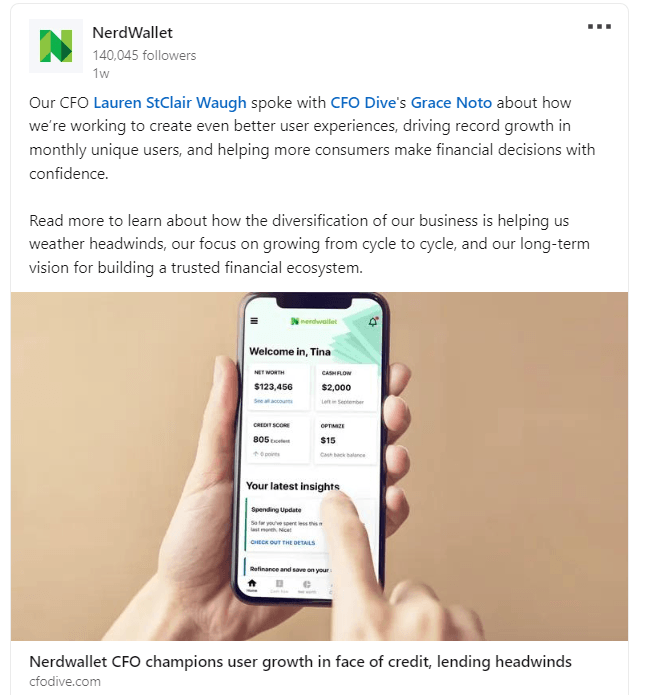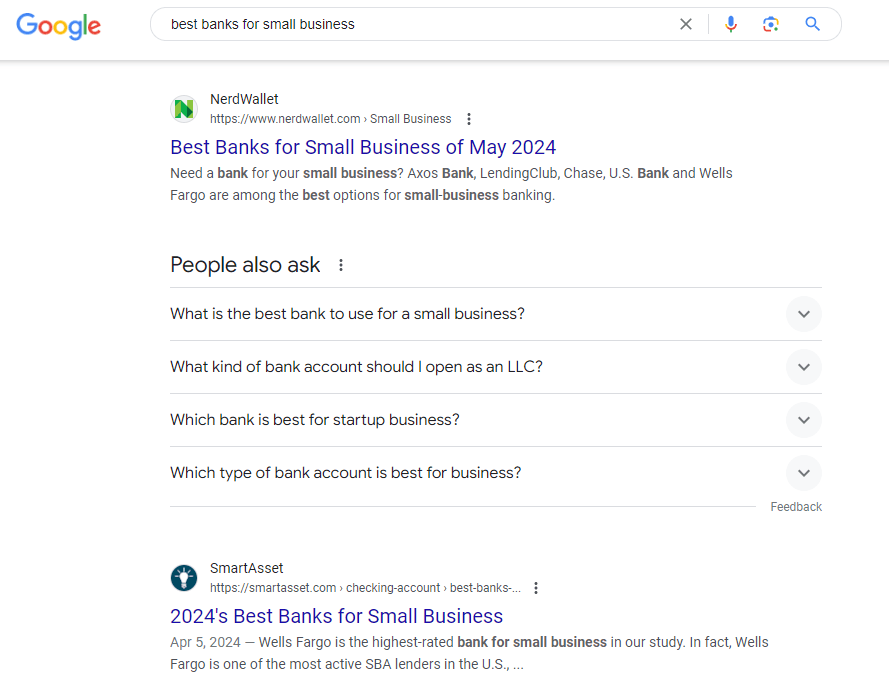Whether you’re in the business-to-business (B2B) or business-to-consumer (B2C) market, you’ll find marketing strategies for small businesses that support your budget, goals, and market.
Explore our top picks (based on 25++ years of experience) now:
The most effective marketing strategies for small businesses
The most effective marketing strategies for small businesses include:
1. Email marketing
Email marketing allows you to send messages about promotions, product information, or business updates as needed.
To get started, you should collect email addresses via website sign-ups, contests, incentives, or discounts.
Organize customer information into groups based on their wants and needs. Develop a strategy to send personalized emails to your prospective, current, and former customers.
Want to boost your email marketing game? Check out the latest email marketing statistics for key insights on personalization, lead nurturing, and engagement!
2. Social media marketing
Social media marketing allows you to reach people across the globe.
To get started with this marketing technique for small businesses, choose one social media platform you’d like to research.

Consider options like Instagram, TikTok, X, Facebook, LinkedIn, and YouTube. Learn how to post content, create reels, invest in paid aids, and partner with influencers.
Enjoy increasing your brand awareness and boosting your number of followers. Engage with your audience so they know you care about their needs, want to hear their feedback, and will respond to their questions quickly.
3. Content marketing
Content marketing allows you to draw people in and make them want to learn more about your brand. To get started, you should create content tailored to your target audience.
Make your content relevant, informational, educational, or entertaining. Quality content establishes your brand’s experience, expertise, authority, and trustworthiness (EEAT) in your industry.
You can increase your revenue over time by identifying ways to capture and retain your customers’ attention at every point of the buying journey.
4. Search engine optimization (SEO)
SEO allows your website and shared content to show up in search results. As a result, your business can get more traffic, generate leads, and boost conversion rates.
To get started, you should research keywords relating to your products and services. Use relevant keywords in titles, headers, content, meta descriptions, and URLs.

Additionally, you should implement other small business SEO tactics to see the most effective results. Use the best linking practices, ensure mobile responsiveness, provide fast loading speeds, and optimize your images.
Track your conversion rates to see what works well, and brainstorm ways to improve and analyze your competition to stay ahead of the game.
5. Mobile marketing
Mobile marketing allows you to reach more prospects daily. To get started with this effective marketing strategy for small businesses, ensure every aspect of your website, from browsing to purchasing, is mobile-friendly.
Customize your marketing campaigns using available tools, such as search histories and location tracking. Experiment with location-based ads, in-app promotions, and short message services (SMS) and track the results.
6. Traditional marketing
Traditional marketing allows you to provide relevant information to your target audience. The approaches may involve radio or TV ads, billboards, newspaper advertisements, magazine articles, and direct mail.
To get started, consider how to reach your target audience. Are your prospective, current, and former customers a part of industry memberships and affiliations? Do they subscribe to magazines or listen to certain radio stations?
While relevant and effective, traditional approaches may cost more than digital marketing services, so keep your budget in mind when brainstorming traditional versus digital marketing strategies.
7. Experiential marketing
Experiential marketing allows you to connect with local consumers. This small business marketing strategy may involve hosting events like pop-up shops, contests, giveaways, concerts, facility tours, tutorials, and workshops.
Rather than selling a product, this approach aims to raise brand awareness and establish brand loyalty. Ultimately, customers should connect with your brand positively.
Encourage customers to recommend your products and services to friends, family, peers, and social media followers.
FAQs
Learn more about small business marketing strategies:
What is small business marketing?
Small business marketing is the process of promoting a small business through online and offline channels, like print, search, and email, with the intent of growing the business’s brand awareness and sales.
Why is small business marketing important?
Small business marketing is important because marketing helps people:
- Discover your brand
- Learn how your product or service solves their problem
- Purchase your product or services
Without marketing, small businesses rely on word-of-mouth. While effective, word-of-mouth can plateau, especially in niche industries. With marketing, small businesses can expand their customer network.
What are the types of small business marketing?
The types of small business marketing include offline and online channels:
- Paid
- Search
- Social
- Mobile
Marketing strategies using multiple channels (or building an omnichannel strategy) often see more success because they create a cohesive experience that reaches users across multiple channels and touchpoints.
What tools do small business marketing strategies use?
A small business’s marketing strategy will often use the following tools:
- Google Analytics 4
- Google Search Console
- Ad networks like Google Ads, Meta Advertising, and Microsoft Advertising
- Social networks like Facebook, Instagram, and LinkedIn
- Email software, like Mailchimp, MailerLite, or Constant Contact
In some cases, businesses will have the budget for marketing automation software like HubSpot, Mailchimp, or Brevo.
Grow your brand with the most effective marketing strategies for small businesses
From search to email to social, you have options when it comes to marketing your small business. Time, however, is the problem. With WebFX (the team behind SEO.com), you can leverage the most effective marketing strategies for small businesses to grow your brand.
Contact us online to learn how our digital marketing services will grow your business!
Let’s Drive Results Together 

$3bn+
revenue driven for clients



Add WebFX to your content marketing toolbox today
Get SEO ProposalTable of Contents
- The Most Effective Marketing Strategies for Small Businesses
- 1. Email Marketing
- 2. Social Media Marketing
- 3. Content Marketing
- 4. Search Engine Optimization (SEO)
- 5. Mobile Marketing
- 6. Traditional Marketing
- 7. Experiential Marketing
- FAQs
- What is Small Business Marketing?
- Why is Small Business Marketing Important?
- What Are the Types of Small Business Marketing?
- What Tools Do Small Business Marketing Strategies Use?
- Grow Your Brand with the Most Effective Marketing Strategies for Small Businesses
$3bn+
revenue driven for clients



Add WebFX to your content marketing toolbox today
Get SEO Proposal


